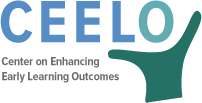This presentation identifies the purposes of peer learning communities (PLC), principles for success, stages of a PLC, and key steps, activities, and considerations. Links to resources are available on the final three slides. Kirsty Clarke Brown gave this presentation to the New Jersey Early Learning Academy.
Comprehensive early childhood systems have the potential to integrate resources to promote the success of all young children. States vary in their ability to ensure all young children have access to high quality programs. Research indicates that good data, clear communication, and effective management systems are critical to the sustainability of effective early childhood systems. Technical expertise can build the capacity of SEA staff to work side-by-side with state partners to strengthen the early childhood system and achieve school readiness and school success goals for children.
Evaluation of Early Childhood Teachers
This webinar highlights the development, recommended uses, and expected tools from the Evaluating Early Childhood Educators (Prekindergarten through Third Grade) supplement to the Center on Great Teachers and Leader’s resource, Practical Guide to Designing Comprehensive Teacher Evaluation Systems.
Incorporating Early Learning Strategies in the School Improvement Grants (SIG) Program
This report features case studies of three selected schools receiving SIG funds that have, with the support of their districts, promoted the use of early childhood programming (PK–3) as a key strategy in their schools’ turnaround models. The goal of this document is to increase the awareness and understanding of how to effectively embed PK–3 strategies in school turnaround efforts within the SIG program. CEELO collaborated with the Center on School Turnaround (CST) to develop the case studies.
December 10, 2014 letter from U.S. Assistant Secretary for Elementary and Secondary Education commending the case studies to colleagues.
QRIS and Inclusion
This document reviews which states accommodate children with special needs in their quality rating and improvement system (QRIS), and highlights states with exceptional inclusionary practices.
Young Immigrants and Dual Language Learners: Participation in Pre-K & Gaps at Kindergarten Entry
This webinar presents data that looks at how children from various language and immigrant backgrounds participate in pre-K programs and at how these children perform relative to their White peers at Kindergarten entry.
The Impact of Policy on the Class of 2027: Early Care and Education in South Carolina
This presentation details policy mechanisms that lead to improved child outcomes. The presentation discusses young children’s brain development, dimensions of readiness, elements and measurements of quality, the P-20 approach, and other areas policy can impact. It also includes information on return on investments in early childhood for South Carolina. Jim Squires presented at the Early Childhood Common Agenda Forum South Carolina Children’s Trust.
Professional Learning Academy: Supporting District Implementation of Early Childhood Policy
This document presents information on a Professional Learning Academy model of professional development for district teams and some of the initial impacts of this work on participants.
Evaluating Early Childhood Educators: Prekindergarten through Third Grade, a Supplement to the Practical Guide to Designing Comprehensive Educator Evaluation Systems
This tool helps state and district teams to problem-solve and make design decisions to differentiate evaluation systems for early childhood teachers. Lori Connors-Tadros and Jana Martella designed this supplemental guide as an extension to the Great Teacher and Leader Center’s resource, Practical Guide to Designing Comprehensive Teacher Evaluation Systems.
Tools States Can Use for Building Effective Early Intervention and Preschool Special Education Systems
This presentation reviews two tools for supporting system improvement and shares the perspective and experience of New Jersey. Lori Connors-Tadros and Jana Martella presented with Terry Harrison (New Jersey Part C), Christina Kasprzak (ECTA), and Ann Reale (ICF International) at the Improving Data, Improving Outcomes Conference.
New Early Childhood Indistar® Indicators
This webinar introduces the audience to new Early Childhood Indistar® Indicators developed by CEELO in collaboration with the Center on Innovations (CIL) in Learning. Indistar® is a web-based system for use with district and/or school improvement teams to inform, coach, sustain, track, and report improvement activities. The new early childhood indicators provide an opportunity for stakeholders to use indicators and the associated research to align early childhood education with school improvement efforts.
Peer Learning Community Guide
This document delineates the steps to establish and sustain a peer learning community (PLC). It begins with a definition of a PLC and then presents the steps to take to establish a PLC.
What Do We Know About Principal Preparation, Licensure Requirements, and Professional Development for School Leaders?
This policy report describes findings from a CEELO review of data on 21 states’ principal licensure requirements, interviews with experts on principal preparation and professional development in seven states, and interviews with staff at the National Association of Elementary School Principals and the National Institute for School Leadership. Our research reveals an array of administrator licensure titles assigned to grade-level authority across states, some permitting principals or administrators the flexibility to oversee programs ranging from early childhood through high school. Early childhood content is not a required element of principal preparation or professional development for principals in most states, according to our findings. Very few states have any formal requirement for early childhood content in licensure for principals responsible for early education programs. Some states have developed policies and programs that acknowledge a need for integrating early childhood content, but very few have progressed beyond initial stages of providing training or outlining policies. (July 2014, Policy Report)
